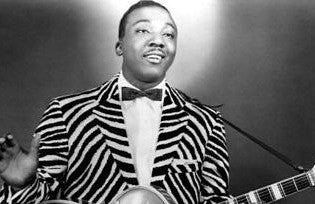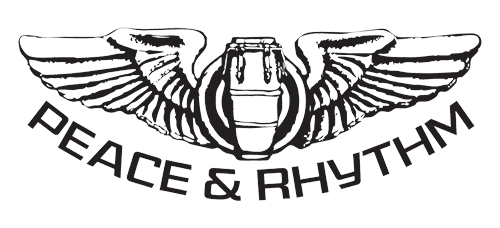J.B. Lenoir / March 5, 1929 - April 29, 1967
March 5, 2017

J.B. Lenoir was an explicitly topical blues singer with a higher voice operating out of Chicago in the ’50s and ’60s. He cut the politicized “Korea Blues” in 1951. His controversial 1954 song “Eisenhower Blues” (lyrics: “My money’s gone, my fun is gone, the way things look, how can I be here long?”) was pulled from the shelves. His mid-’60s output was as political as ever. “Vietnam Blues” questioned the USA’s involvement in Southeast Asia as blacks were being killed with regularity in Mississippi (“Mister President you always cry about peace, but you must clean up your house before you leave”). Other songs touched on civil rights, racism, anti-war themes and less serious matters as well. His big hit was the 1954 classic “Mamma Talk To Your Daughter”, covered by dozens of blues and rock artists since. He started experimenting with African percussion in his music before a car accident left him fucked up. He died three weeks later.
His actual given first name was J.B. and his last name is pronounced “Len-nor”. He came from Mississippi and learned guitar from his father, with Blind Lemon Jefferson another major influence. He spent some time working in New Orleans in the ’40s, playing with Elmore James and Sonny Boy Williamson II, before heading up to Chicago in ‘49 and befriending Big Bill Broonzy and playing with Memphis Minnie, Muddy Waters and Sunnyland Smith. His distinctive voice, jazzy style, flamboyant outfits and politicized lyrics gained him notoriety in the city and beyond. He cut a bunch of sides for Parrot, JOB, Chess, Vee Jay and other labels. In ‘63 he recorded for USA Records “I Sing Um The Way I Feel” and “I Feel So Good” under the moniker J.B. Lenoir & His African Hunch Rhythm.
In the mid-’60s he cut two classic acoustic LPs, recorded by Muddy Waters, Alabama Blues and Down In Mississippi(both available together on the single Evidence Records CD Vietnam Blues - The Complete L &R Recordings). A tour of Europe followed, but that car accident crushed any hope of stardom.
Here’s his 1963 cut “I Sing Um The Way I Feel”, with Afro percussion, a rarity in blues at the time.
